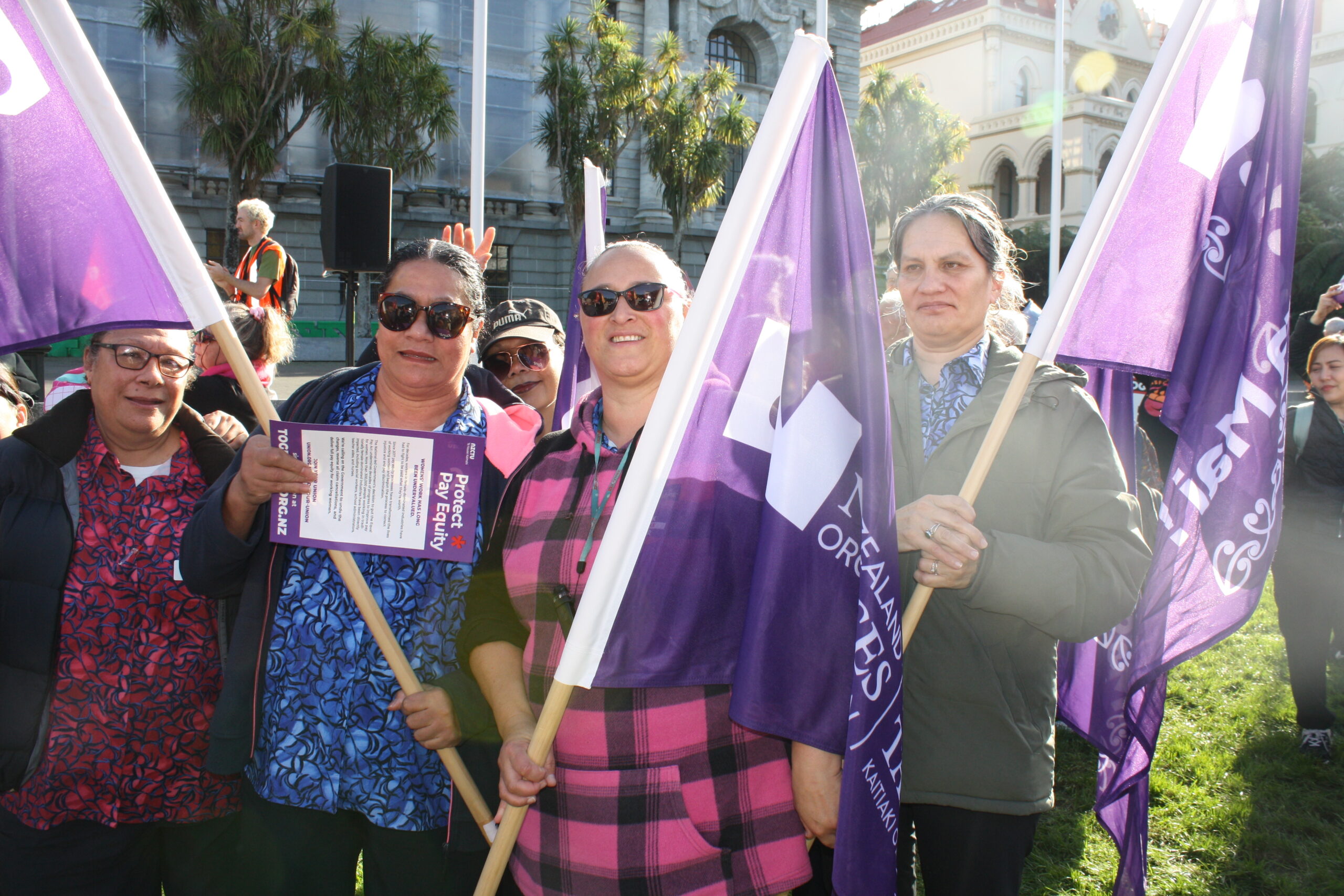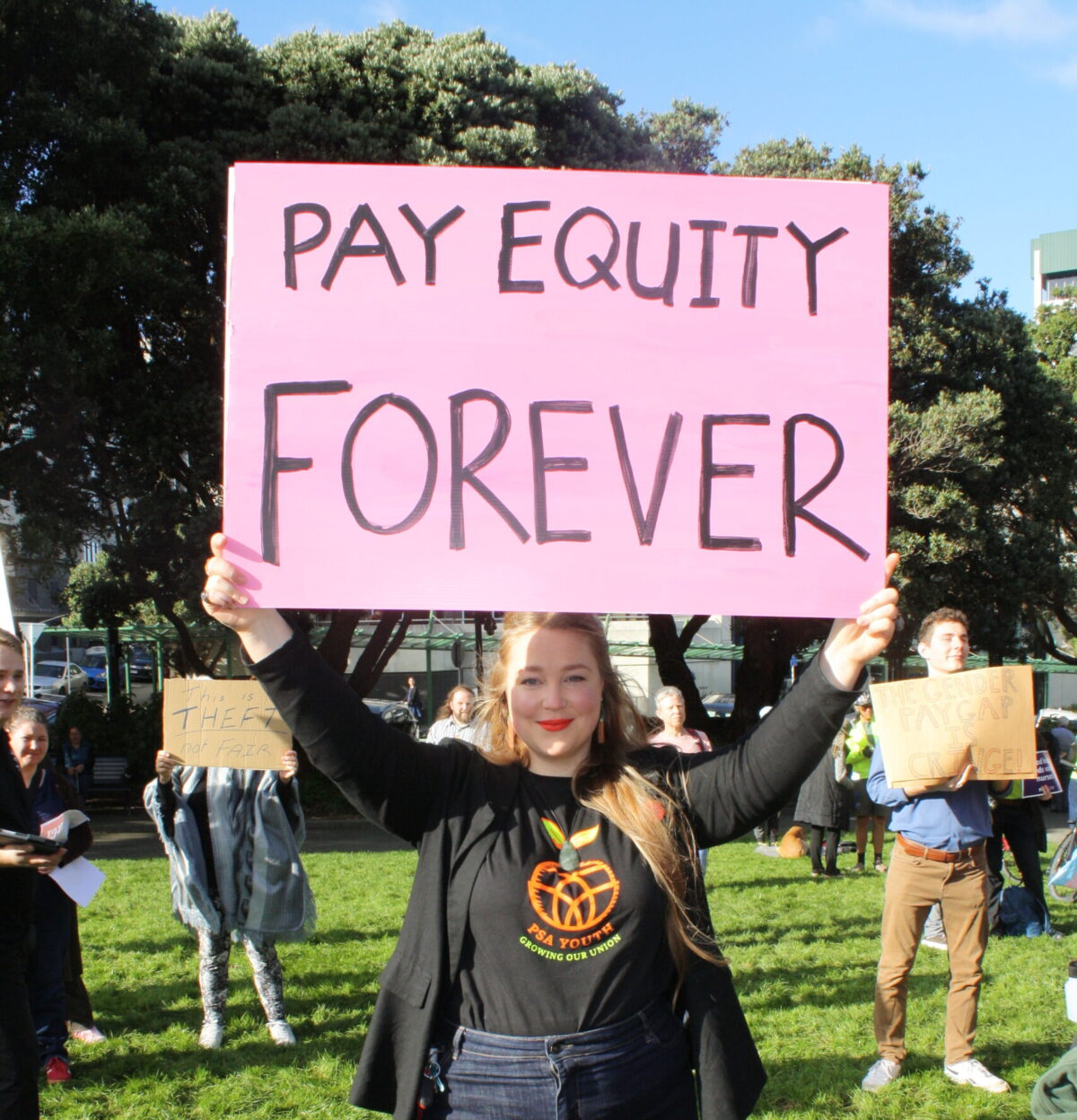The four pledges, developed by the Council of Trade Unions (CTU), were:
- To restore all 33 pay equity claims including for care and support workers, teachers and library assistants.
- To reverse its recent Equal Pay Act amendments which prevented working people in women-dominated occupations to attain pay equity.
- To deliver pay equity settlements to all workers waiting for their claim.
- To fight for pay equity “on the streets” and at the ballot box.
In the end, nurses accused the Government of “magical thinking” in its Budget 2025, which NZNO leaders said “utterly failed” to address the crisis in primary and community health care; or to address underfunded Māori and iwi providers.
‘But the biggest injustice of all has been the nurses and kaimahi hauora that work within Māori and iwi providers and Pacific providers.’
Instead, Budget 2025 took what Finance Minister Nicola Willis estimated was $12.8 billion from 33 scuppered pay equity claims for low-paid workers in female-dominated occupations like nursing, teaching, caregiving and social work, to pay for tax incentives for business.
NZNO primary health care nurses college chair Tracey Morgan said there was nothing to address staff shortages, nor a 10 per cent wage gap for nurses in her sector.
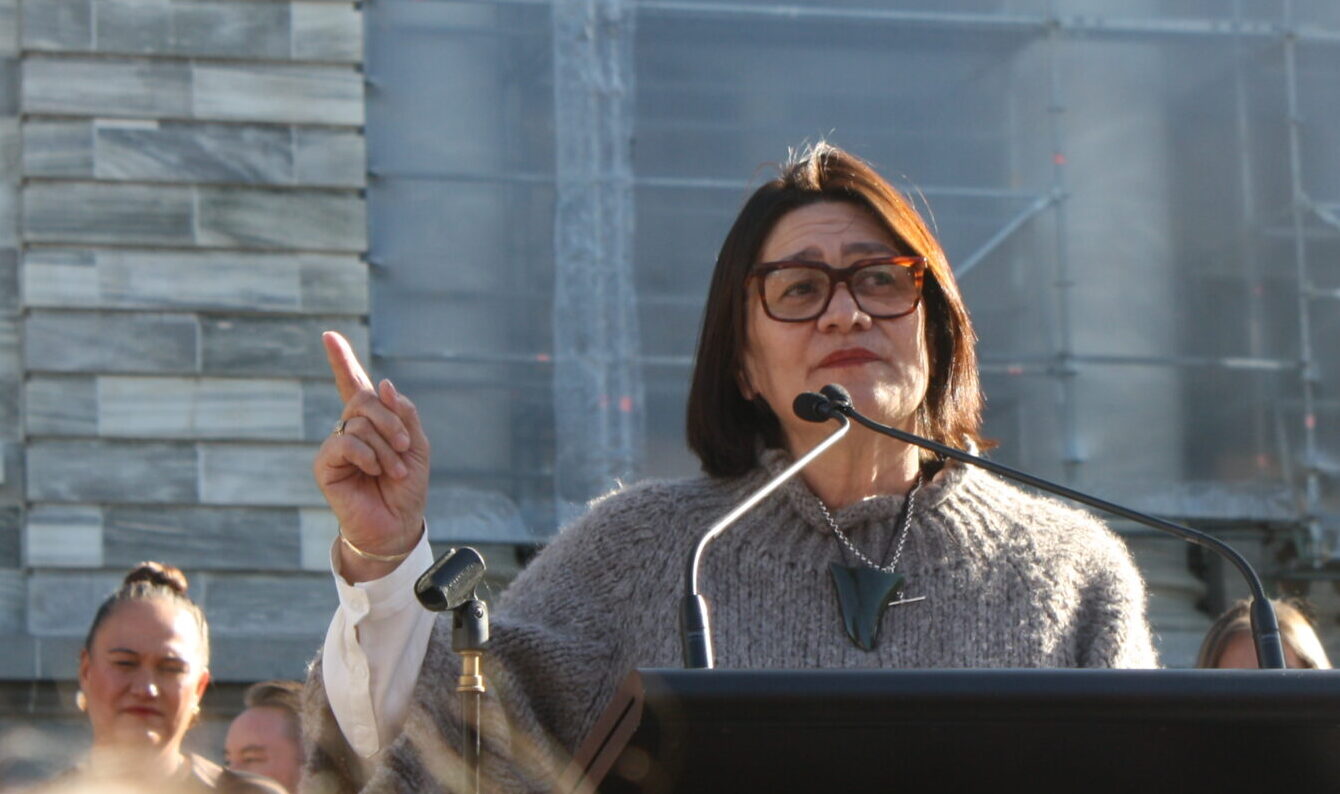
“Instead, the Coalition Government has enabled further privatisation of the health system by giving $164 million to mainly Australian-owned urgent care franchises most New Zealanders can’t afford to go to.”

Earlier, speaking to hundreds of protestors at Parliament, NZNO kaiwhakahaere Kerri Nuku said nurses and health workers were “devastated” after about 10,000 lost their claims “overnight”.
“Shock and anger — that’s what we heard from our members when, in an instant, all their hopes of having the gender discrimination that has kept their wages low their entire working lives were left in tatters.”
Ten of the 33 scrapped pay equity claims included NZNO members from care and support, community, aged care, Plunket, hospice and laboratories, among others.
‘There was a lack of natural justice and nobody had any input at all — and it sucks.’
Plunket and hospice nurses would have to restart their almost-completed claims, while primary health nurses had accepted their last offer “because they were led to believe they were on the cusp of closing the pay gap — to be equal”, Nuku said.
“But the biggest injustice of all has been the nurses and kaimahi hauora that work within Māori and iwi providers and Pacific providers,” she said.
“They already face the struggle of trying to provide culturally-safe care . . . in a health system that does not recognise whānau.”
Post-Budget, NZNO president Anne Daniels said the Government’s promise to fix or rebuild four hospitals, increase inpatient beds nationwide and fund several smaller projects for $1 billion was “magical thinking”.
“The Finance Minister [Nicola Willis] has found her unicorn after all. This is kicking the can down the road for a future government to acknowledge it can’t be done.”
The Budget yesterday revealed $1 billion plans to redevelop Nelson Hospital with a new inpatient building and refurbishment of its two main buildings. A new emergency department would also be built at Wellington Hospital and electrical, heating and fire safety systems upgraded at Palmerston North and Auckland hospitals, as well as Auckland outpatient clinic, the Greenlane Clinical Centre.
However, with no new operational spending beyond last year’s $1.37 billion, and a hiring freeze, the health system would continue to struggle with understaffing, Daniels said.
“Finance Minister Nicola Willis was right. This is a no-BS Budget — a no basic services Budget.”
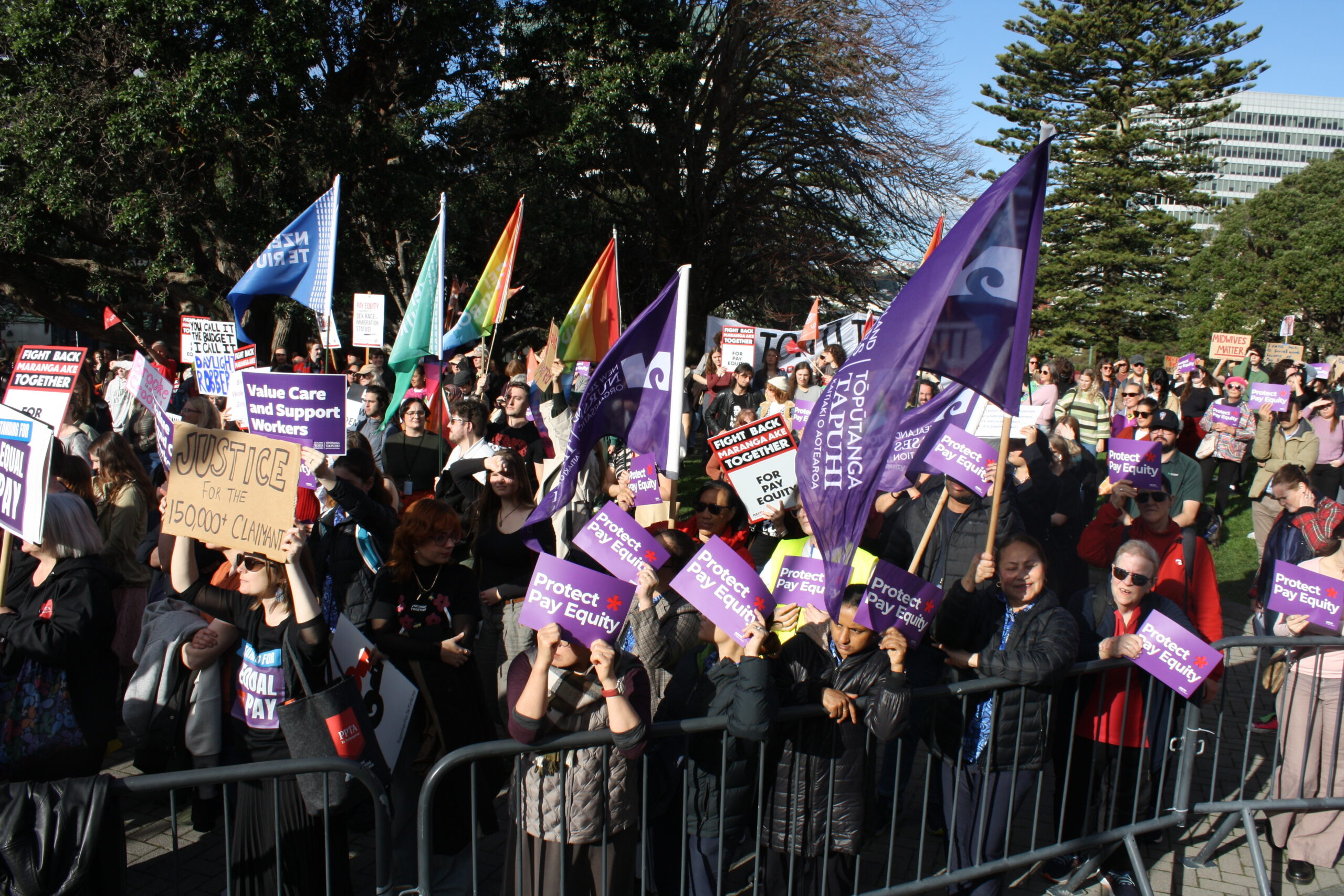
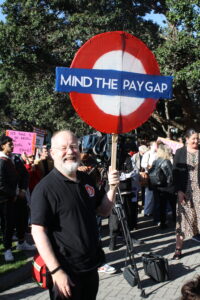
Earlier, Minister of Health Simeon Brown made a pre-Budget $164 million commitment over four years for urgent after-hours care in Whangārei, Palmerston North, Tauranga, Dunedin and Counties Manukau; and to extend existing services in Lower Hutt, Invercargill and Timaru.
GPs have questioned how they will be staffed, amid primary health workforce challenges.
NZNO chief executive Paul Goulter has said nearly 300 more full-time primary health nurses were needed — yet they were paid up to $10,000 per year less than nurses in hospitals.
Much of that difference was due to Te Whatu Ora’s pay equity settlement, he said.
Pay equity ‘ripped away’
Protesting aged care workers were among hundreds of workers who turned out at Parliament ahead of the Budget 2025 announcement, enraged by the Government’s mass-scrapping of pay equity claims.
An estimated 350,000-plus workers in women-dominated occupations would be affected, CTU national secretary Melissa Ansell-Bridges said.
‘We know what we are standing for is right — we are on the right side of history . . . Hopefully at some point they [in Government] will realise they are not.’
The Government had “ripped away” pay equity claims from more than 180,000 women — and stalled pay equity reviews for another 170,000 who had won deals, she said.

The Government was “stealing from the future pay packets of New Zealand women” to give tax breaks to wealthy landlords and tobacco companies, she said to cries of “shame”.
‘I’ve been 40 years a nurse and have felt undervalued a lot of that time.’
“We know what we are standing for is right — we are on the right side of history. . . Hopefully at some point they [in Government] will realise they are not.”
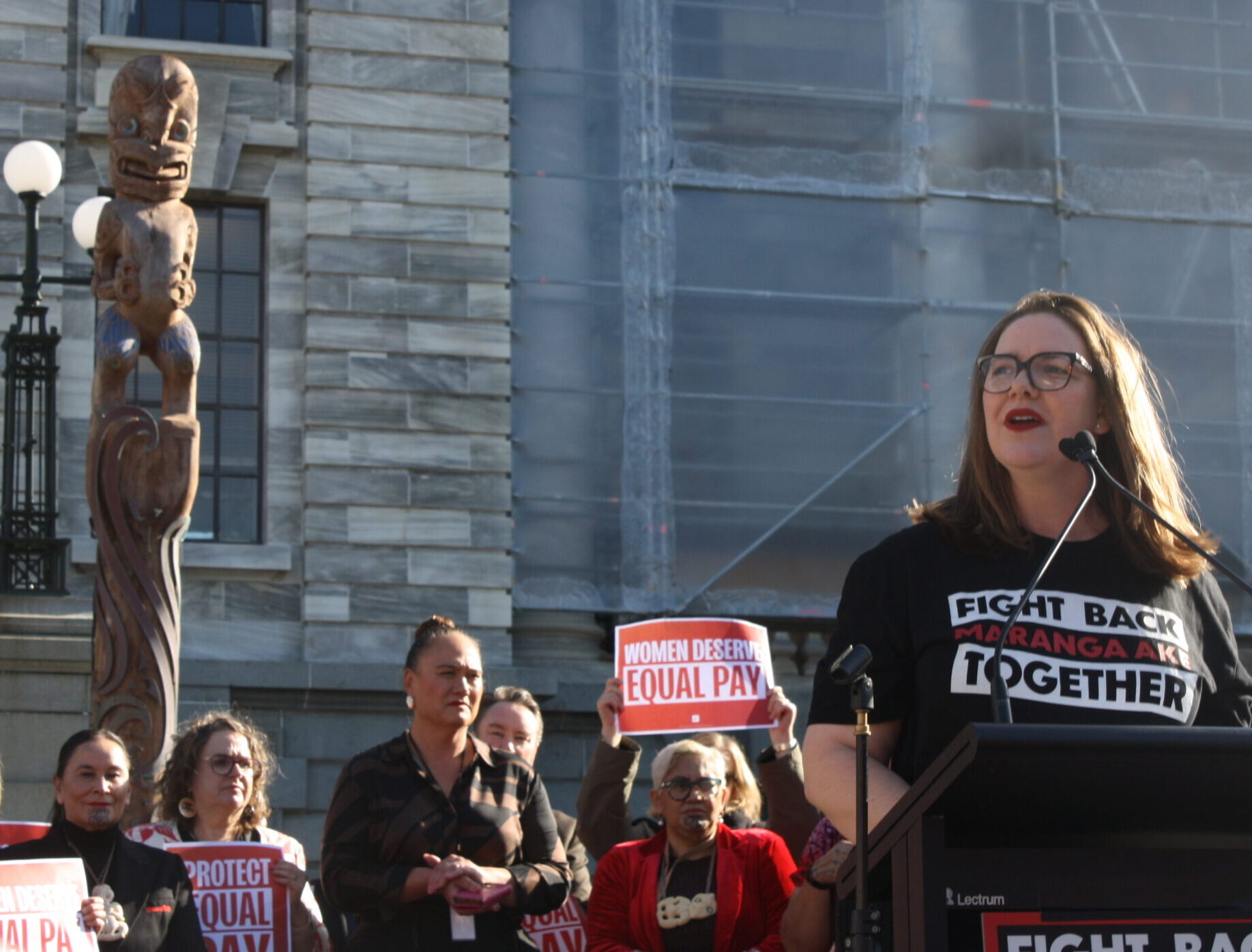
Aged-care workers, who must now refile their pay equity claim, told Kaitiaki they were upset their hard work was not recognised, especially as they were constantly short-staffed.
Wellington hospice nurse Fiona McDougal said the scrapping of pay equity claims took those nurses outside hospitals still fighting for equal pay by surprise.
“It wasn’t something we were expecting — it was never mentioned in the Coalition [agreement]. . . There was a lack of natural justice and nobody had any input at all — and it sucks,” she told Kaitiaki.
“I’ve been 40 years a nurse and have felt undervalued a lot of that time.”
Her message to Government on Budget day? “We deserve this — give us pay equity now!”
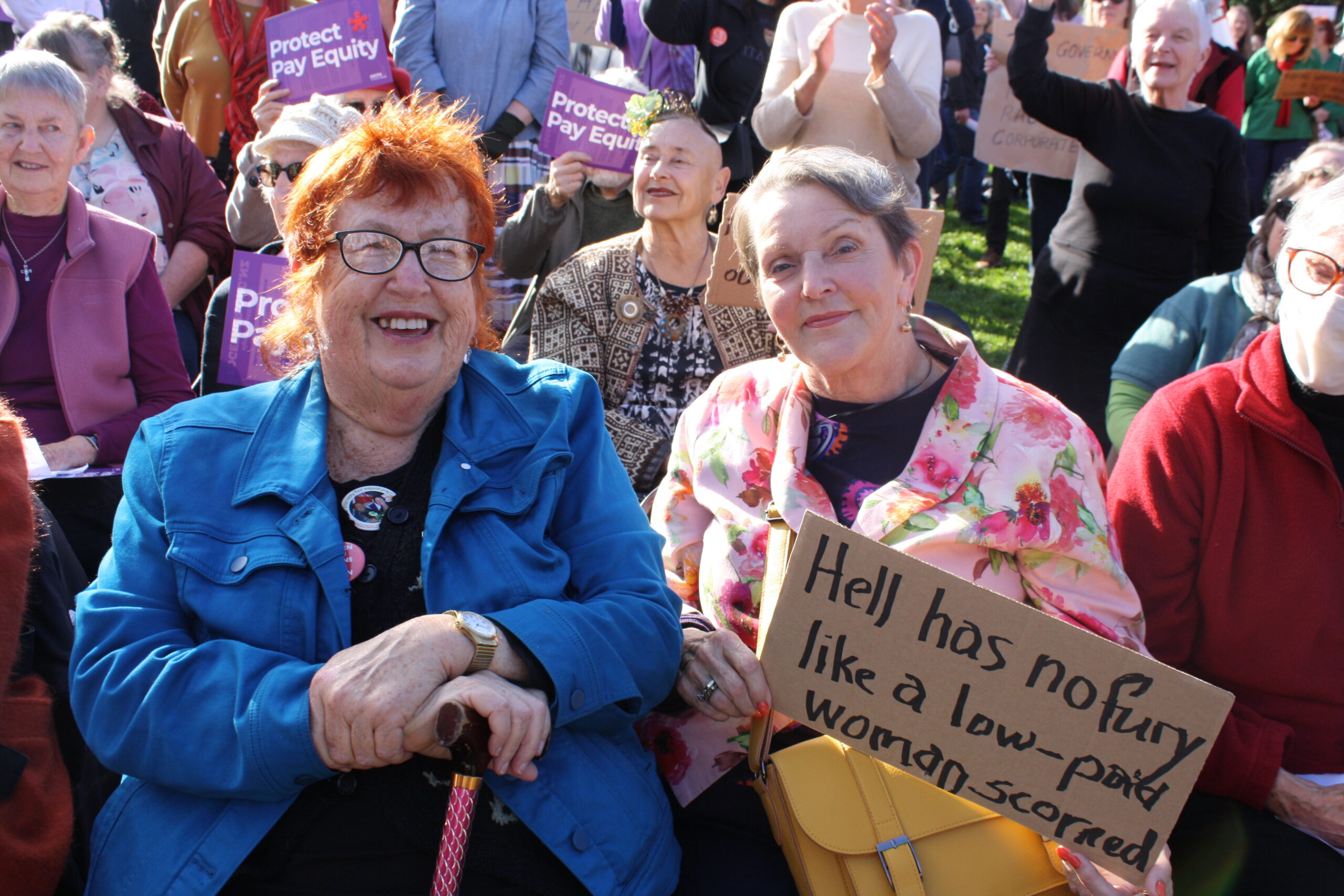
Retired union organiser Therese O’Connell said she was driven by “pure anger” to attend, along with activist Pinky Agnew who said she came out of “rage, rage, rage”.
‘We put our lives on the line. We were essential workers once upon a time. Now we’re unessential.’
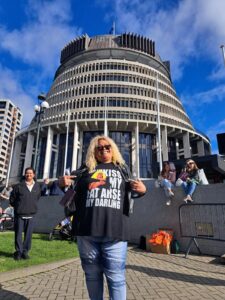
E tū care worker Jo-Chanelle Pouwhere said the Government had forgotten about its frontline workers — who were leaving the country.
“We put our lives on the line. We were essential workers once upon a time. Now we’re unessential,” she told the crowd.
“Well I’m telling them to go kiss my fat ****.”
Public Service Association (PSA) librarian assistant Tessa Bowler said she was one of many women “who had pay equity stolen from us”.
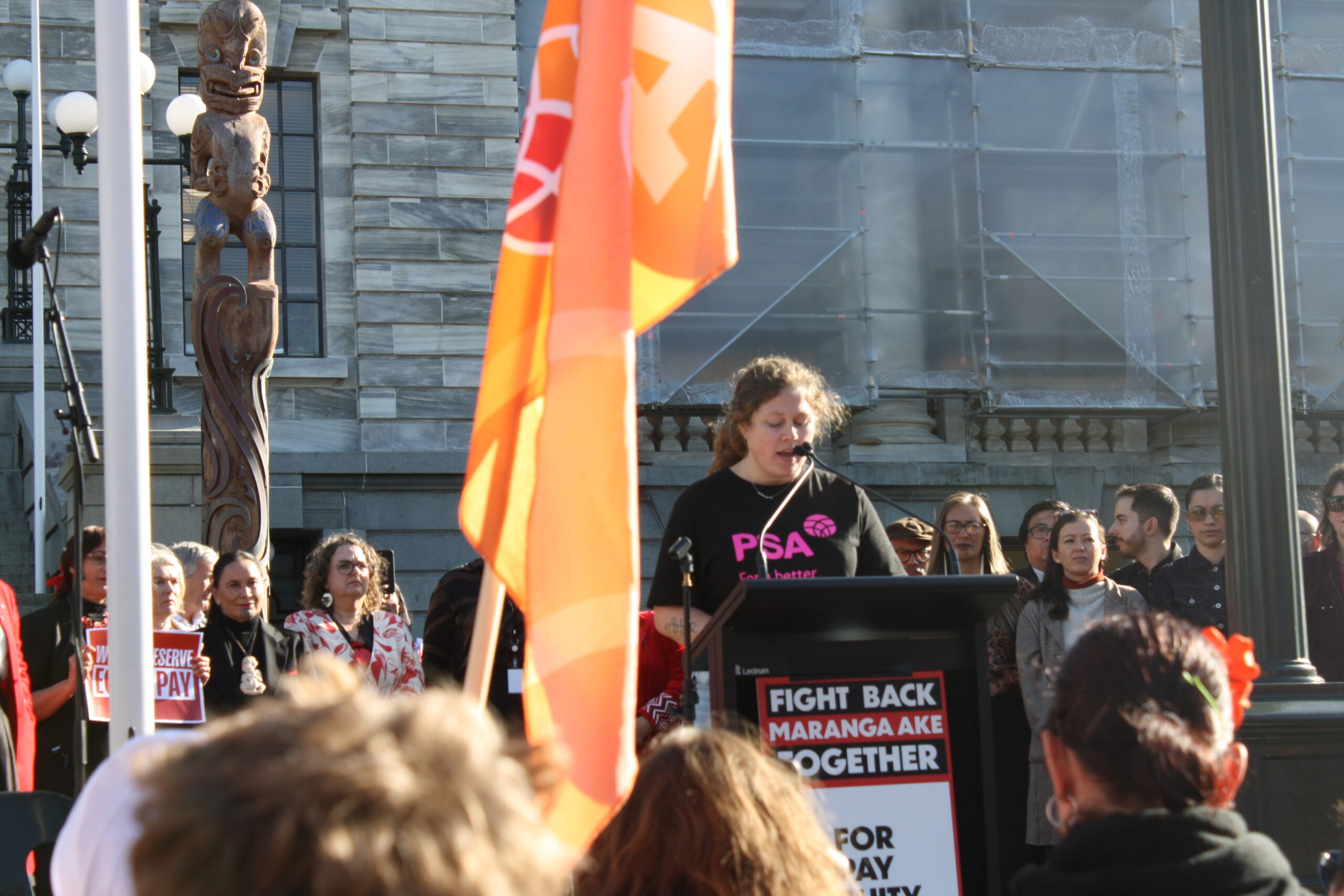
“The end of our claim has been devastating,” said Bowler. “It would have meant a better life . . . trips to the dentist . . . car repairs — those sort of basic things that make life a bit easier.”
Lillian Pak and Jaimee Whitney — who came dressed as handmaidens from The Handmaid’s Tale TV series set in a dystopian place called Gilead where women are subservient to men — said they felt New Zealand was heading in that direction with the scrapping of pay equity claims.
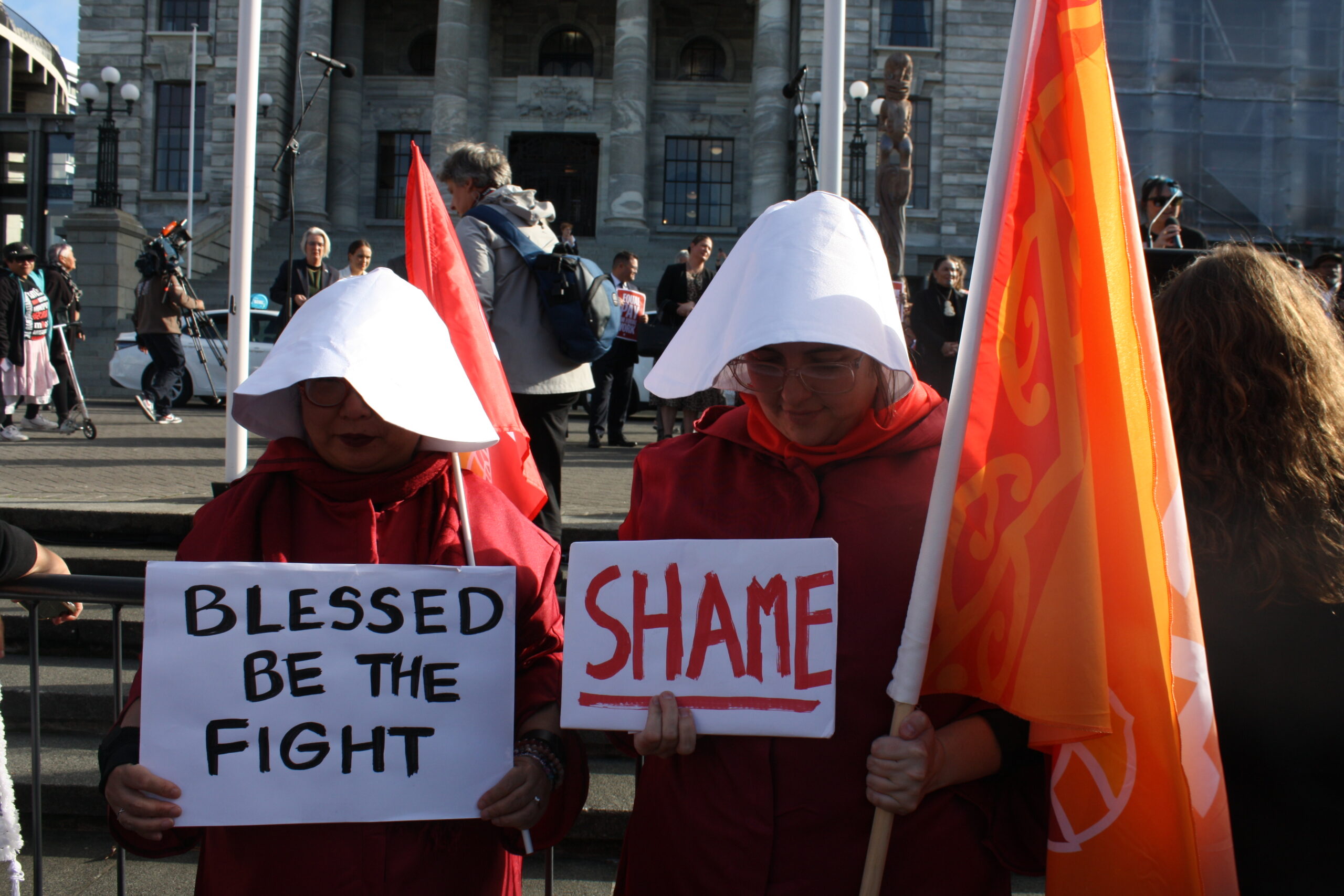
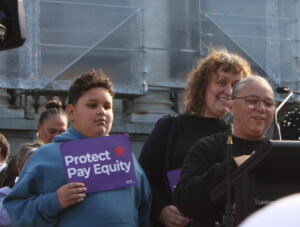
NZEI delegate and teacher aide Helena Tihani said their mahi was “often quiet and behind the scenes but it is powerful and it holds our schools together”.
“As a Māori woman, who is a teacher aide, it’s more than just a job to me. It’s a way to serve our tamariki, uplift our culture and support our whānau,” she said.
“We support our children, helping them feel seen, heard and valued, especially for those who need extra help.”
